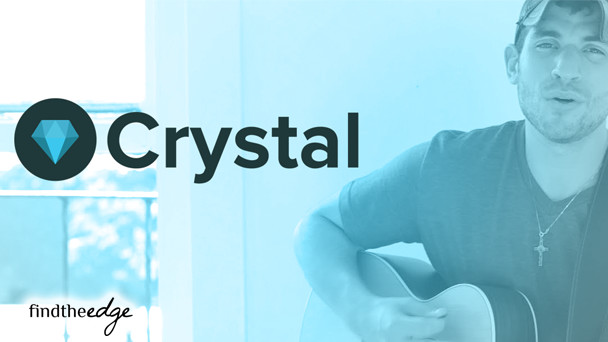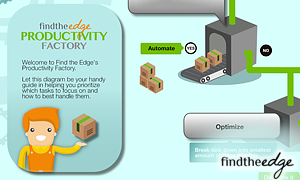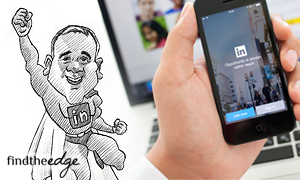Interview with Crystal Knows founder Drew D’Agostino

Podcast: Play in new window | Download | Subscribe on iTunes
Check out these 5 Free Tools to help you win clients and influence people
Kenny: Welcome to this episode of Find the Edge. I’m Kenny Goodman and today I’m over the moon to have Drew D'Agostino of Crystal Knows app, which bills itself as the biggest improvement to email since spell check. And elsewhere, it’s described as somewhere between a Horoscope and a Myers-Briggs profile. Also, it’s been mentioned in The Guardian here in the UK as walking the line between innovative and super creepy. And it really is, it’s so accurate it kind of creeps you out.
Let me give you a quick overview before we grab Drew who’s in a rush today, super busy because the business is growing faster than he can keep up with it. He is the founder of it but I’ll just give you a quick overview before we get him online.
Now Crystal uses proprietary personal detection technology, so a little bit like a psychometric test from a distance. And it uses this to create unique personality profiles for every person who has an online presence. So if you’ve got a LinkedIn profile, then it’s probably creating a profile of you or if you’ve got a Twitter profile, or if you leave reviews and that type of stuff, so it probably does include you.
It offers suggestions on how to speak with people, how to email them, how to work with them and also how to coach them and much more. For example, when used with Gmail, Crystal makes suggested corrections to email based on your recipient’s personality profile, by suggesting the words, phrases, style and tone you should use in order to reach your recipient in the way that they like to communicate rather than in how you like to communicate.
I’ve been using it for just over a week now, I think it might have been two weeks now and I’m always looking for – it has this little button here and I’ll talk about this with Drew shortly in the show – but it has this little button that makes suggestions for you in how to change the email. It doesn’t always, sometimes it says ‘looking good’. But other times it says suggested changes. And it’s really, really powerful.
This, from the outside, appears to be pretty revolutionary stuff, big disruption in the market here. So let us chat with the revolution leader now to find out how it can help you win more first rate clients.
Hey Drew, welcome to the show. How are you?
Drew: Doing very well, thank you.
Kenny: That’s good to hear. Now before you came on the show, I gave my kind of overview of Crystal. But I’d just like to hear in your words, if you could just give us a few sentences of what Crystal does in your eyes.
Drew: Yeah. So Crystal is a technology product that can tell you the best way to communicate with anybody and it does that by detecting the personality from any public information that they’ve written online.
Kenny: Yeah, okay. And as I’ve said before, it kind of makes suggested corrections as well. So you can tie it into Gmail as well, can you, and it will make suggested corrections on how you should speak and communicate with that person based on the recipient’s personality profile.
Drew: Yeah. So anybody can look at profiles on Crystal to see what Crystal thinks about them or somebody that they know. But really, where the value is in using that information and then applying it in your communication. So the first place we’re doing that is in Gmail and we have a Chrome extension that plugs into Gmail, kind of works like spell check as you’re writing. So it corrects for the personality of the person so you make sure you’re communicating clearly with them.
Kenny: Yeah, okay. So when did all this start and how did it start?
Drew: I started the project last year. It was really just an extension of kind of a practice that I’ve been trying to use in my own communication. It started out at my last company. We’re trying to hire people and recruit and manage them. And it’s pretty clear that when you’ve got a company that’s growing really fast and there’s a lot of different lines of communication happening all at once, people have very different styles and personalities.
And a lot of times, if you’re communicating quickly, especially in email or text or some sort of online and written communication, you can misunderstand or even come to conflict over something with somebody, when really you’re just misunderstanding what they mean because they’ve got a different style than you.
Let’s say, if I’m being very direct and to the point, somebody who has a more formal communication style might think I’m just being rude or overtly blunt. When really, this is just how I speak and vice versa.
So the idea of Crystal came from trying to reconcile those differences with personality types and trying to have a good understanding of who, that me personally, I was communicating with and using that and adjusting. I realize I can have a much healthier, more productive relationship because of it.
Kenny: Absolutely. I mean, I like to use brevity so I like to keep my emails short. I’ve actually upset a few of my clients because they, mainly one client and friend actually who writes super long emails. As soon as I see a super long email, my eyes glaze over and I’ve got to get out of here. I’ve got to go to the next email.
And I like to write short and sweet emails and I’ve kind of upset this person because my responses were really short. I was trying to get her to write short emails as well, but in the end, I upset her.
I suppose this is where Crystal will come in really handy because I’ve already checked that person’s profile and it kind of does say they want to see the bigger picture, they want to use emotion a lot more in communications and stuff. Whereas me, I’m kind of totally the opposite. I need to be quick, fast and exchange the information as fast as possible. So it’s really, really powerful.
Drew: That’s really the idea and you’ll see that at first, people get the idea that Crystal is somehow dehumanizing communication, kind of having a robot intervene. When really, actually what it’s doing and you kind of realize this as you start to use it, it’s actually just coaching you on being a more apathetic person.
So you’re thinking of the person you’re trying to communicate with rather than purely what comes naturally. Like in your case, let me just give the information to her as quickly as possible, when maybe that’s not really what she likes to hear or needs to hear in that case. So it really comes down to that pretty basic, very non-innovative but fundamental human problem.
Kenny: Yeah. I happen to use it for probably over a week now, maybe two weeks and I’m kind of looking for that button that changes color if it has a suggestion for you. So I’m kind of looking for it now, so I’m kind of getting into it because it’s made so many suggestions for me so far in my communication that it is actually becoming a part of my life now. Is that how you’re going to spread the message? Do you see it as becoming quite addictive for people?
Drew: Yeah, I think I wouldn’t say addictive because this is a completely new concept. It’s not like we’re replacing something that exists already because this is like a new addition, another layer to your email. So first of all, it’s very difficult to get into that process. Anyway, it’s actually very encouraging to hear that it’s become a real significant part of your communication process.
But I think what you’ll find in the next few weeks is that you will start to anticipate a little more what Crystal is going to say to you based on the person. As you email the same people, you kind of get the understanding of who they are and what Crystal usually corrects you for and the types that will usually come up.
You’ll find that there will be less and less corrections. They’ll still come up and we always are updating the types of things that we look for. But you’ll find that you’ll actually start typing emails that are just more effective without being corrected.
So what Crystal is doing is really training you to be a better emailer. Right now, it might still feel like Crystal is kind of a slap in the face all the time because it’s correcting you. I think gradually over time, it feels more like a nudge. It’s like, alright let’s correct course here. This is not exactly the right thing to say.
So you’ll find yourself, I think, using it a little less frequently because you’ll have that training behind you, but you’ll find that your quality of communication is getting better. So I won’t say you’ll be addicted to it, but it’s going to have a clear improvement in your communication and because of that, that’s where people really connect with our vision and rely on it for any new relationship that they have.
So it’s not like an addiction for an existing relationship. It’s just alright, I need this because I don’t know this person that well.
Kenny: Yeah. It reminds me of an app I use called Hemingway. I don’t know if you’ve ever heard of it. It’s really good for writers. So when I’m blogging, I kind of put my blog into Hemingway and it makes suggestions to kind of shorten some sentences or certain sentences that are too difficult to understand, so make them simpler.
I’m finding that I don’t get as many corrections now because I’m getting better naturally because of the nudging that Hemingway is giving me. Do you think it’s going to be the same with Crystal?
Drew: I think so, although there’s a couple of different dimensions with Crystal because you’re writing to potentially hundreds of different individuals, each with a different personality type. So it’s not like there are static rules for this is right and this is wrong. Something might be write for one person and totally wrong for the other person.
So that’s a part of Crystal where it still definitely requires the nudge, even if you’re a very experienced user and you don’t know the person you’re writing to that well.
Kenny: Yeah.
Drew: I think that’s how it develops.
Kenny: And I want to come on to the different personality types in a minute, but first of all, tell me about the moment you kind of came up with the idea for Crystal Knows, the exact moment where you just had that insight really where, hey this is what I’m going to do here? Because I know that you’re fairly entrepreneurial. You founded or co-founded quite a few companies and you’ve only just recently graduated, didn’t you?
Drew: I only graduated from college about 2 ½ years ago.
Kenny: Right, okay.
Drew: So I guess, I don’t know, I’ll probably disappoint you. There is a good moment. When I was first trying to come up with how Crystal is going to work, I was just doing a lot of experimentation to see if this was actually possible, to detect personality from somebody’s writing. And I was just throwing a bunch of stuff at the wall, all sorts of different natural language processing techniques and pattern phrase matching and stuff like that.
When I came up with something that worked, it happened when I was looking at a profile with the co-founder of a previous company and saw that this is actually accurate, and then kept looking at other people and realized that worked. It was a moment when it kind of crossed from being this would be really cool if this existed, to oh my goodness, this is possible.
At that moment I was like, alright, I guess this is the thing I’m doing next because I can’t ignore this. Since then it’s just been off to the races. It’s become kind of an obsession, making the technology accurate and actually applying it in communication for as many people as I can.
Kenny: And I can say that from research that the 64 different personality types that you can categorize people into, how did you come up with those?
Drew: It’s based on DISC profiles and DISC is a personality framework that’s fairly similar to Myers-Briggs, except it is very focused on communication between the different personality types. So it’s why we use that because it unlocks a lot more beyond just looking at somebody’s personality. You can have a dramatically, very unique relationship predictions, say this person will likely relate to this person this way.
And then the 64 is kind of just the arbitrary breakdown that is unique enough to where everybody feels like they have a different personality profile, but not redundant.
Kenny: And you gather this information from different social profiles, don’t you, so from their updates? Is it from reviews? Where do you get this information from?
Drew: For the DISC profiles?
Kenny: Yeah. So obviously, you have information on a lot of people on the web who are on the web, which could include the listener. So where do you get that information from?
Drew: So the information that we analyze is basically the same thing as google-ing somebody. So we use Google services where we’re trying to find information written about a person and then we can find using other social networks like Twitter of LinkedIn to find more information.
Kenny: Yeah, okay. And do these personality types, does it have a different effect if someone is male or female? My wife asked this question because she actually said, it’s probably going to say that for every woman or for every man that they only want to answer emails in three sentences or less because in her experience, men seem to be a little bit more to the point. So what would you say to that?
Drew: I can tell you Crystal does not seem to have a gender bias. I have to do an analysis to find out if there are certain correlations of certain personality types between genders. That’s research I haven’t really done yet.
Anecdotally, I don’t really notice too much of a tendency. I find that there is a pretty even mix that transcends both ends of the spectrum. But there could be. If there are some correlations, I imagine it wouldn’t be that huge. You’ll probably be looking at something like a 55-45 as opposed to an 80-20.
Kenny: Yeah. I used to work in the recruiting industry and I can see that this is just going to catch fire in that industry, without a doubt. But how can it help my current audience of coaches, consultants, trainers and other service professionals who are looking to win clients and keep them by servicing them better?
Drew: I guess all the industries you’re talking about there, they all revolve around relationships, you notice. And ultimately, it all boils down to that. And that’s on the front of whatever you want to call it, the funnel where you’re just meeting somebody for the first time, through nurturing their relationships, towards closing them on whatever your sale is, and then retaining them.
That all boils down to communication. So I guess what you can do, look at it just like any relationship. Does anybody want to relate to somebody and create a good relationship with somebody who’s very one-sided and seems kind of ignorant towards their needs? Or now that you have this information available, would you rather that person use the information to actually communicate with me as a client in a way that I appreciate being communicated with, even if I know you’re getting this information from a resource like Crystal? That makes me feel good because I know that you care enough to do that.
I think in these industries that are so based on relationships like that, Crystal can really help every step of the way in there, whether it’s reaching out to somebody for the first time and you don’t know, to make sure that you hit them in a way that you know at least you’re going to get your message right. And then it’s up to you to put out the content that is compelling for them.
Versus somebody you’ve known for a long time and maybe you have conflict over certain things, and maybe Crystal comes in this critical part where you have a conflict and you just really need to know how to approach it because it’s a touchy situation. For some people, it’s really important to go right into it, have an argument with them. Other people, you have to handle it delicately and gently, and be more passive.
So I think Crystal can have significant impact in all these different, rather abstract touch points.





